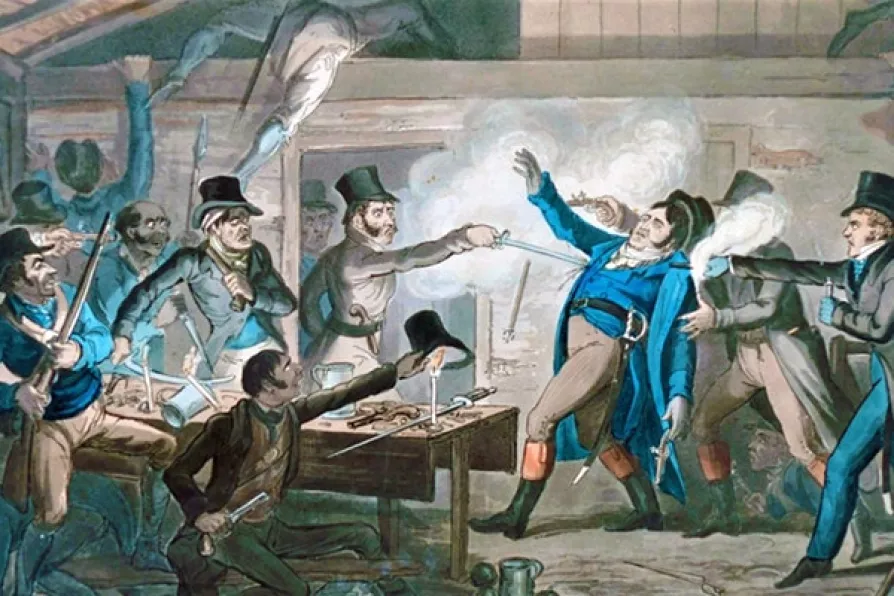By pressuring Mexico to halt oil shipments, Washington is escalating its blockade of Cuba into a direct bid for economic collapse and regime change, argues SEVIM DAGDELEN

 A cartoon depiction of the arrest of the Cato Street Conspirators
A cartoon depiction of the arrest of the Cato Street Conspirators
IT IS 205 years since the Cato Street conspiracy was “uncovered” on February 23 1820 and the leaders duly despatched at the scaffold or to Australia.
It warrants a section in EP Thompson’s classic account of the Making of the English Working Class (1963) but until recently has been largely overlooked both by mainstream and left historians.
The conspirators, who, like others before them, had been infiltrated by government spies — a reminder that spycops are nothing new — planned to attack a “Cabinet dinner” in central London, murder the prime minister, home secretary etc and display their heads on poles.

Inspired by a hit TV show, KEITH FLETT takes a look at the murky history of undercover class war

It’s not just the Starmer regime: the workers of Britain have always faced legal affronts on their right to assemble and dissent, and the Labour Party especially has meddled with our freedoms from its earliest days, writes KEITH FLETT

The government cracking down on something it can’t comprehend and doesn’t want to engage with is a repeating pattern of history, says KEITH FLETT

Research shows Farage mainly gets rebel voters from the Tory base and Labour loses voters to the Greens and Lib Dems — but this doesn’t mean the danger from the right isn’t real, explains historian KEITH FLETT










